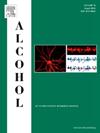Evaluating a 30-day alcohol abstinence challenge in heavy-drinking individuals with and without chronic pain: Feasibility, safety, and perceived benefits
IF 2.9
4区 医学
Q3 PHARMACOLOGY & PHARMACY
引用次数: 0
Abstract
Introduction
To combat high-risk alcohol consumption, we introduced a 30-day alcohol abstinence challenge targeted at heavy drinkers with and without chronic pain. Our study aimed to assess the challenge's feasibility and safety and to explore its perceived benefits. Our exploratory aim was to identify participants' coping strategies during the challenge.
Methods
Our single-arm study recruited heavy drinkers from a pain clinic and a university setting (n = 34, 64.7% chronic pain). Participants underwent a modified community-based 30-day challenge, which included motivational interviewing, an individualized start date, and weekly phone check-ins.
Results
We found the 30-day challenge was feasible and safe; 72.3% of eligible heavy drinkers participated in the challenge with no serious adverse events. Most challengers (94.1%) reported some benefit from the challenge, which included improvements in alcohol withdrawal symptoms, sleep, and alcohol abstinence self-efficacy, but not in pain. We identified 25 perceived benefits and 21 coping strategies.
Conclusion
Our study confirms that a 30-day alcohol abstinence challenge is a feasible and safe intervention for heavy drinkers with and without chronic pain, yielding notable health benefits. The challenge also facilitated the development of effective coping strategies. Future studies should explore the long-term benefits of such interventions in broader outpatient settings.
对患有或不患有慢性疼痛的酗酒者进行为期 30 天的戒酒挑战评估:可行性、安全性和可感知的益处。
简介为了打击高风险饮酒,我们针对患有或不患有慢性疼痛的酗酒者推出了一项为期 30 天的戒酒挑战。我们的研究旨在评估该挑战的可行性和安全性,并探讨其可感知的益处。我们的探索性目标是确定参与者在挑战过程中的应对策略:我们的单臂研究从疼痛诊所和大学环境中招募了酗酒者(n = 34,64.7% 为慢性疼痛患者)。参与者接受了经过修改的基于社区的 30 天挑战,其中包括动机访谈、个性化的开始日期和每周电话检查:我们发现为期 30 天的挑战是可行和安全的;72.3% 的符合条件的重度饮酒者参加了挑战,没有发生严重不良事件。大多数挑战者(94.1%)表示从挑战中获得了一些益处,其中包括戒酒症状、睡眠和戒酒自我效能的改善,但疼痛没有改善。我们确定了 25 种感知益处和 21 种应对策略:我们的研究证实,对于患有或不患有慢性疼痛的重度饮酒者来说,为期 30 天的戒酒挑战是一种可行且安全的干预措施,可为健康带来显著益处。这项挑战还有助于制定有效的应对策略。未来的研究应探索此类干预措施在更广泛的门诊环境中的长期益处。
本文章由计算机程序翻译,如有差异,请以英文原文为准。
求助全文
约1分钟内获得全文
求助全文
来源期刊

Alcohol
医学-毒理学
CiteScore
4.60
自引率
4.30%
发文量
74
审稿时长
15.6 weeks
期刊介绍:
Alcohol is an international, peer-reviewed journal that is devoted to publishing multi-disciplinary biomedical research on all aspects of the actions or effects of alcohol on the nervous system or on other organ systems. Emphasis is given to studies into the causes and consequences of alcohol abuse and alcoholism, and biomedical aspects of diagnosis, etiology, treatment or prevention of alcohol-related health effects.
Intended for both research scientists and practicing clinicians, the journal publishes original research on the neurobiological, neurobehavioral, and pathophysiological processes associated with alcohol drinking, alcohol abuse, alcohol-seeking behavior, tolerance, dependence, withdrawal, protracted abstinence, and relapse. In addition, the journal reports studies on the effects alcohol on brain mechanisms of neuroplasticity over the life span, biological factors associated with adolescent alcohol abuse, pharmacotherapeutic strategies in the treatment of alcoholism, biological and biochemical markers of alcohol abuse and alcoholism, pathological effects of uncontrolled drinking, biomedical and molecular factors in the effects on liver, immune system, and other organ systems, and biomedical aspects of fetal alcohol spectrum disorder including mechanisms of damage, diagnosis and early detection, treatment, and prevention. Articles are published from all levels of biomedical inquiry, including the following: molecular and cellular studies of alcohol''s actions in vitro and in vivo; animal model studies of genetic, pharmacological, behavioral, developmental or pathophysiological aspects of alcohol; human studies of genetic, behavioral, cognitive, neuroimaging, or pathological aspects of alcohol drinking; clinical studies of diagnosis (including dual diagnosis), treatment, prevention, and epidemiology. The journal will publish 9 issues per year; the accepted abbreviation for Alcohol for bibliographic citation is Alcohol.
 求助内容:
求助内容: 应助结果提醒方式:
应助结果提醒方式:


